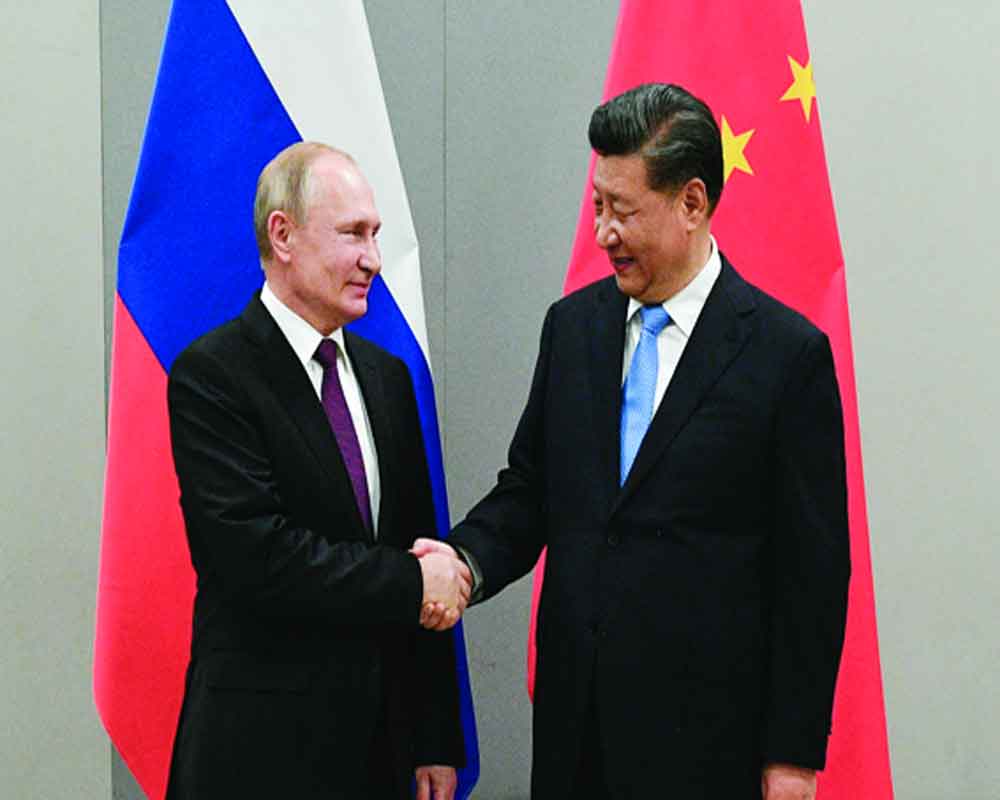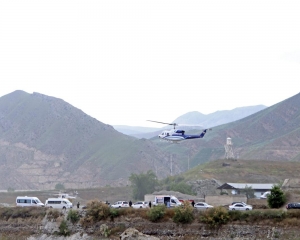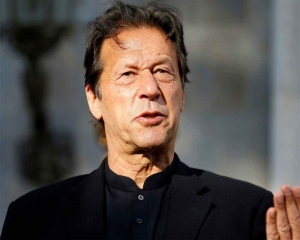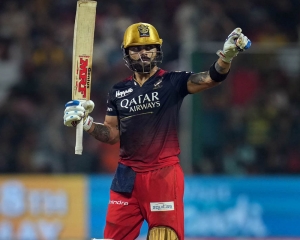China and Russia, the two states, at loggerheads with the US have found a common cause. In their shared world view the US doesn't take centre stage
History is witness to the fact that time undoes the strongest and the weakest alike. Where the West drifts further away from Russia, China steers strategically closer to Moscow than ever before beckoning a time of a desired world order, one that can be a popular alternative to the US-dominated one. The China and Russia partnership has diversified into a strategic alliance that can enmesh all their allies in a comprehensive bracket of flourishing economic prosperity.
A partnership with a vision
Though no formal alliance ties the two, Sino-Russian relations have forged a dependable bond despite sharing a past of disputes and differences. Putting the tumultuous period of the 1960s behind them, post-Soviet Russia and China have diversified their engagements into many streams of collaboration, from formal support in the UN General Assembly to regional security exercises to expansive trade supply. West Asia is the most recent example of their unified views as both parties take a stance of titrated neutrality.
Both the Chinese Communist Party and the Kremlin support the 2-state solution in the Israel-Palestine conflict. The timeline of this West Asian conflict comes as a breather for Russia as the global gaze shifts its attention from Ukraine to Palestine, which consequently gives the China-Russia duo more time to scale up and reinforce their shared views on conflicts through fulsome shows of their efforts toward building peace in the war zone. Statements enumerating Russia’s undulating efforts towards a peaceful resolution in West Asia dot headlines as the Kremlin both criticizes Hamas and offers aid to Palestine. Maintaining a precise balancing act, Russia and China manage to push and pull each other's weight on the scales of global scrutiny and show a face of powerful solidarity.
One of the cornerstones of the China-Russia partnership is their economic collaboration. As the United States pursued protectionist policies and trade wars, China and Russia sought to strengthen their economic ties. Ever since Russia’s isolation from the West after it declared war on Ukraine, China has stood as its strongest supporter economically reporting a 23% jump in its crude oil exports from Russia from the previous year. In a recent agreement, Chinese Premier Xi Jinping and Russian counterpart Vladimir Putin decided to trade in local currency. With China’s heavy energy demands and Russia’s rich resource supply this agreement facilitates smoother trade and interdependence
Though China and Russia promote strategic autonomy they have continually enhanced their security and military cooperation via joint military exercises and the exchange of military technologies that are unavailable to China otherwise. The recent combat exercises in the Sea of Japan and near Alaskan waters are a sign that the Ukraine war has only brought Beijing and Moscow closer together validating the US’ growing anxiety towards China’s growing influence.
Xi and Putin had already released a joint statement, weeks before the Ukraine invasion -a strategic move at securing geopolitical support as suggested by experts and academicians- announcing a “no limits” strategic partnership between the two states that also expressed criticisms and grievances against the US. Even as the Israel-Hamas war rages on, the two maintain a synonymous criticism of US involvement in West Asian affairs even though China shows restraint in making explicit references. The continual strengthening of bonds between the two is evidence of successful withstanding of international pressure and isolation. The China-Russia partnership is birthed from the insecurity of a Western-centric world order spearheaded by the US. Both nations have strategically and consciously crafted their diplomatic and economic engagements as counterbalances to the US’ sphere of influence and containment strategies which they criticize as contributing to deteriorating regional stability. They continue to push for a new world order of intense economic collaboration through more native, multilateral institutions such as the BRICS, the Shanghai Cooperation Organisation (SCO), and the BRI forum and are steadily accumulating support for the same.
Perfectly coupled as high energy demand and high resource supply calibre states respectively, China and Russia have already invested significant diplomatic and economic efforts into seamless energy cooperation. The Power of Siberia II gas pipeline and the Yamal natural gas project are prominent examples of the same. Putin’s recent visit to Beijing also focused highly on the energy cooperation between Russia and China, a strategy repeatedly executed by the Kremlin since Ukraine’s invasion as China accommodated the largest share of Russian oil exports in recent years. The two envision energy cooperation that promotes greater Eurasian integration and extends to East Asia.
A spell of doom or a lesson in power projection for the US?
As China and Russia strengthen their alliance, they assert their influence in regions traditionally dominated by the US, such as Central Asia and the Arctic with a combined power projection in the area. Their diversified and conscious economic engagements with regional blocs and states unclaimed by US influence could pose a threat to Washington’s unilateral tendencies of power hoarding. Sino-Russian vision promises a data-backed increase in economic prosperity by up to 4% through their projected plans like the BRI and North Sea Route alternative. In a world that is streamlined to the capitalist system of economic growth, such a prospect might be difficult to turn away from amidst rising diplomatic complications and proxy wars.
(The writer is a researcher and an expert on international relations, views are personal)


























